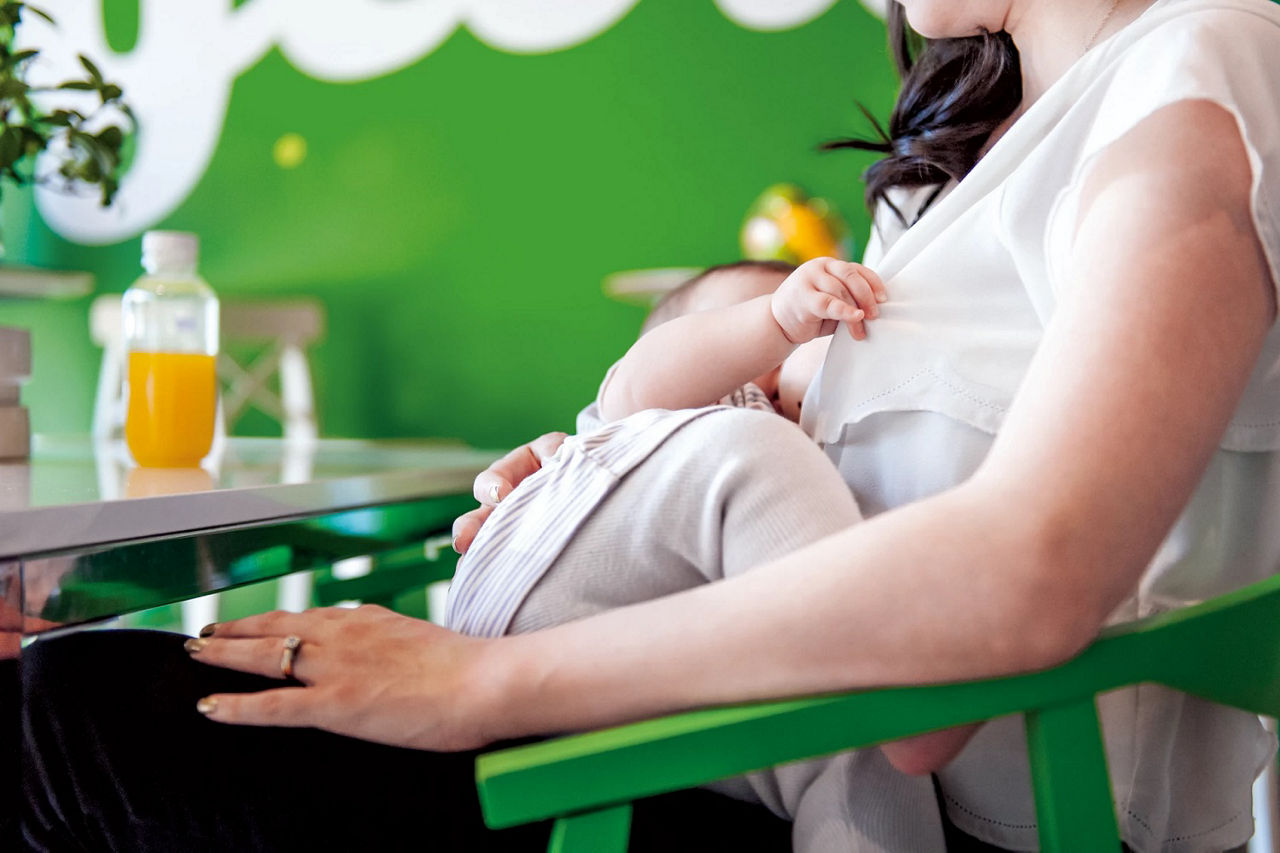Free weaning plan - Register here
Understanding your feeding options
Whether you choose to breastfeed, bottle-feed or combine the two, it’s a big decision. Ideally you should give it some thought and talk it through with your midwife or health visitor.
Breastfeeding
Experts and health professionals agree that breastfeeding is best for babies and ideally should be continued for the first six months at least. Your own milk is perfectly balanced to suit your baby. It is easy for them to digest and contains antibodies which help support their growing immune system. And the benefits of breastfeeding don’t end there, click through to find out more about how breastfeeding is good for both your baby and you.
Generally, babies enjoy being breastfed as it’s incredibly comforting for them – they feel the warmth of your body at the same time as getting the satisfying nourishment from your milk. Once you’ve worked out the best breastfeeding position for you both, you’ll really come to love these special moments!
Bottle-feeding
Government guidelines advise women to breastfeed for the first six months of their baby’s life but some women find this difficult or simply decide that it’s not the right choice for them.
All ready-made and powdered baby milks contain nutrients necessary for your baby's healthy growth and development.
For more information about bottle-feeding, why not look at our bottle-feeding section?

Bottle-feeding in hospital
Some maternity units don’t have baby milk available. So if you’re planning to bottle-feed your baby in hospital, check whether you need to bring your own baby milk and feeding equipment in your hospital bag. If they do provide milk, check that it’s the same type as you are planning to use at home. You may want to bring your own if they don’t so that your baby gets used to your preferred brand of milk.
Combined feeding
If you are interested in combined feeding, speak with your health visitor about your decision first and be sure to plan and introduce it gradually. It’s best to wait until breastfeeding is well established, usually around six to eight weeks, as replacing some breast feeds with feeds of baby milk will reduce your overall breastmilk supply. It also gives you both time to get used to the breastfeeding experience, which lessens the chance of your baby preferring the bottle and giving up on breastfeeding. Take a look at our article on combined feeding for more information.
Important notice
Breastfeeding is best for babies and provides many benefits. It is important that, in preparation for and during breastfeeding, you eat a healthy, balanced diet. Combined breast and bottle-feeding in the first weeks of life may reduce the supply of your own breastmilk, and reversing the decision not to breastfeed is difficult. The social and financial implications of using an infant milk should be considered. Improper use of an infant milk or inappropriate foods or feeding methods may present a health hazard. If you use an infant milk, you should follow manufacturer’s instructions for use carefully – failure to follow the instructions may make your baby ill. Always consult your doctor, midwife or health visitor for advice about feeding your baby.

Join our baby club
Ready to stop worrying about what other people think and do what feels right to you? We’ll give you the support you need to follow your instincts and enjoy parenthood to the max:
Helpful emails
Non-judgemental support
Free weaning plan
Tips from real parents
More from baby
Baby topics
Need free advice with a smile? Get in touch with our dedicated Care team.
Ask us a question (8am - 8pm Monday to Friday, 10am - 4pm Weekends)
Messenger
Contact us on Facebook (10am - 10pm, 7 days a week)
Call us
Call us on 0800 977 8880 (8am - 8pm Monday to Friday)
FAQs
Get answers to your most frequently asked questions
?ts=1701080535170&dpr=off)


?ts=1701080541433&dpr=off)

